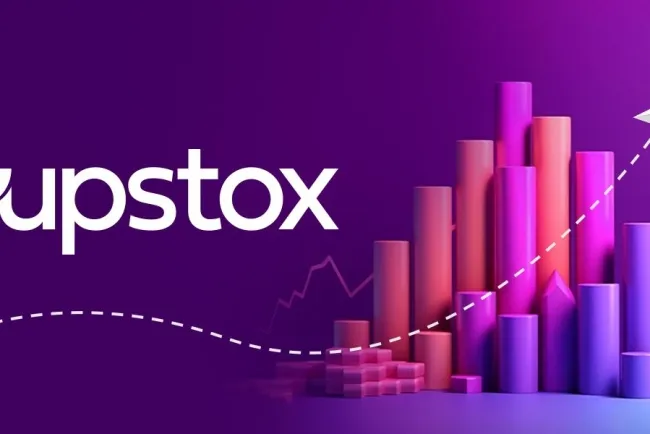The Declining ROI of an MBA: Is It Still Worth It?
Once considered the ultimate career booster, an MBA from a top-tier institution like Harvard no longer guarantees a high-paying job or career success. With rising joblessness rates among graduates, the rapid growth of AI, and an oversupply of MBAs, the value of a traditional MBA is being questioned. Here’s a look at why an MBA might not be as essential as it once was, and what you should consider if you're thinking of pursuing one.

For decades, a Harvard MBA was seen as a golden ticket to a top-tier job, a six-figure salary, and a rapid rise up the corporate ladder. However, recent reports are suggesting that this might no longer be the case. In fact, a growing number of MBA graduates from prestigious schools are finding themselves jobless or struggling to secure the lucrative positions they once expected.
In 2024, 23% of Harvard MBA graduates were jobless three months after graduation, up from 20% in 2023 and just 10% in 2022. This marks a significant shift for one of the most coveted degrees in the world. Other top business schools in the U.S. are facing similar trends. For example, 13% of Northwestern Kellogg's graduates were jobless in 2024, a stark rise from previous years. The trend is also seen at Chicago Booth, where hiring numbers have dropped drastically. According to a career officer at Harvard, “Going to Harvard is not a differentiator anymore. You need the skills to back it up.”
What Has Changed?
In the past, attending a top B-school was a clear path to a successful career. Graduates could almost always count on securing a job before even finishing their studies. The real challenge was getting accepted to these institutions, but once that hurdle was crossed, career prospects were nearly guaranteed. However, in recent years, the landscape has shifted. Now, an MBA alone is no longer enough to ensure job security.
The Rise of Artificial Intelligence
One of the main factors contributing to the changing dynamics of MBA job placement is the rise of artificial intelligence (AI). While management roles may be less affected than other job sectors, industries such as finance are seeing a direct impact. Major firms like Goldman Sachs, Morgan Stanley, JP Morgan, and UBS have developed AI platforms that streamline operations and reduce the need for human workers. This shift has led to fewer job openings in traditional fields that were once major employers of MBAs. While AI may not replace management roles entirely, it certainly reduces the demand for manpower in some sectors.
Over Supply of MBA Graduates
Another significant factor is the oversupply of MBAs in the market. In India alone, nearly 300,000 MBAs graduate every year. Since 2010, India has added 13 new Indian Institutes of Management (IIMs), further increasing the pool of MBA graduates. As more people enter the job market with an MBA, the value of the degree diminishes. This is basic supply and demand: more supply means lower value.
Shift Toward Specialization
In addition to oversupply, there’s also a growing demand for specialized skills. Companies no longer just want general managers; they are looking for experts in fields such as digital marketing, data science, or AI. An MBA without a clear area of specialization is often less attractive to employers. As firms increasingly prioritize specialized knowledge, they can also turn to undergraduates who have specific skills at a fraction of the cost of hiring an MBA graduate.
The New MBA Reality
Given these factors, prospective MBA students need to rethink their approach. Here’s what experts are suggesting:
- An MBA Alone is Not Enough: If you’re considering an MBA, keep in mind that the degree on its own might not open doors. You will likely need to upskill in specific areas such as digital marketing, data analysis, or AI to stand out. This means that the time and money invested in an MBA could need to be supplemented by additional learning, especially in niche, high-demand fields.
- Consider Specialized Degrees: Rather than pursuing a traditional MBA, consider specialized degrees that offer better job prospects. Programs in data science, AI, cybersecurity, and other in-demand sectors can be more valuable in today’s competitive job market. Specializing in a field with clear job prospects could provide a higher return on investment than a general management degree.
- Be Mindful of the Cost: MBA programs, especially those at top-tier schools, are incredibly expensive. Many students take out significant loans to cover tuition and living expenses. Given the rising uncertainty in the job market for MBA graduates, it’s crucial to weigh the costs carefully. Will the investment in a top-tier MBA lead to a return that justifies the expense? For many, the cost-benefit ratio might not be as favorable as it once was.
The Changing Business School Landscape in India
The situation in the U.S. is being mirrored in India’s top business schools as well. The Indian Institutes of Management (IIMs), which once boasted 100% placement rates within days of graduation, are now seeing a reality check. In 2024, many IIMs struggled to meet their placement goals, with some even taking up to two months to finalize placements. Only three of the six old IIMs managed to complete their placements, and just one of the 15 newer IIMs achieved full placement within the typical timeframe.
This shift in the job market has forced top B-schools in India to reassess their programs and placement strategies. While the Indian job market remains strong in many areas, there’s also a growing recognition that a general MBA is not enough to secure a top position. The demand for more specialized expertise is also growing in India, particularly in fields like tech, finance, and consulting.
Conclusion: Rethinking the MBA Dream
While an MBA can still offer value, it’s clear that the dream of a guaranteed career post-graduation is no longer a given. The job market is changing, driven by the rise of AI, the oversupply of MBAs, and the growing demand for specialized skills. If you’re considering an MBA, it’s important to carefully weigh the costs and the return on investment. Rather than blindly following the MBA craze, focus on gaining specific skills that are in high demand, whether through an MBA or other specialized degrees.
The MBA landscape is shifting, and so should your approach. If you want to succeed, focus on building expertise, upskilling, and making informed decisions based on the current job market realities. With the right strategy, you can still turn an MBA into a valuable asset—but it may require more than just a degree from a top school.
What's Your Reaction?

















